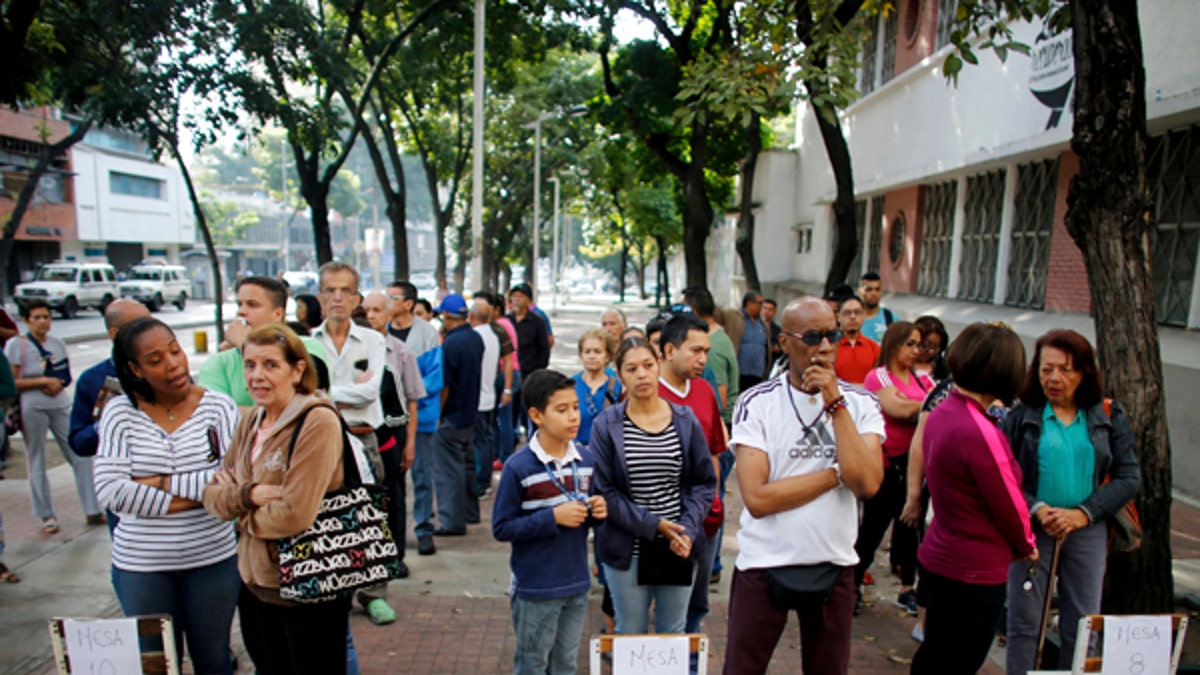
Voters wait outside of a poll station to enter to cast their ballot during the election for a constitutional assembly in Caracas, Venezuela, Sunday, July 30, 2017. President Nicolas Maduro asked for global acceptance on Sunday as he cast an unusual pre-dawn vote for an all-powerful constitutional assembly that his opponents fear he'll use to replace Venezuelan democracy with a single-party authoritarian system. (AP Photo/Ariana Cubillos)
CARACAS, Venezuela — Venezuelan electoral authorities said more than 8 million people voted Sunday to create a constitutional assembly endowing President Nicolas Maduro's ruling socialist party with virtually unlimited powers — a report more than double the estimates of independent experts and opposition leaders who met the announcement with fury and derision.
National Electoral Council President Tibisay Lucena announced just before midnight that turnout was 41.53 percent, or 8,089,320 people. Members of the opposition said they believed between 2 million and 3 million people voted and one well-respected independent analysis put the number at 3.6 million.
The electoral council's vote counts in the past have traditionally been seen as reliable and generally accurate, but Sunday's widely mocked announcement appeared certain to escalate the polarization and political conflict paralyzing the country.
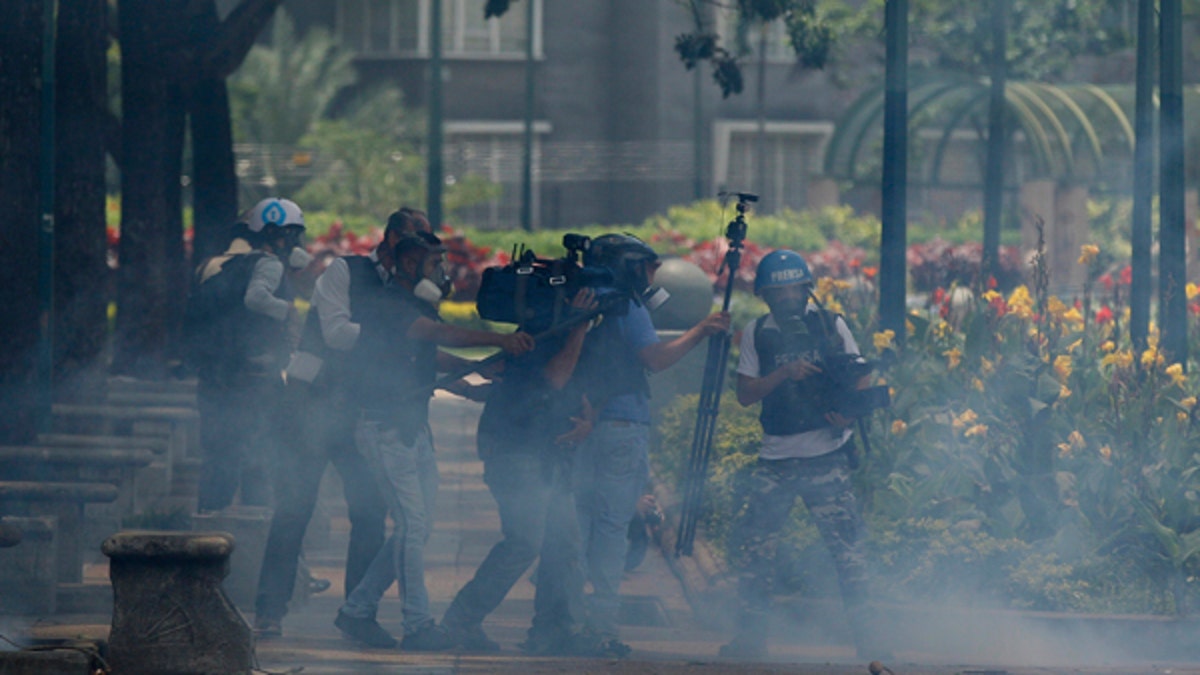
Journalists take cover from tear gas fired at them by the Venezuelan Bolivarian National Guard during clashes at Altamira square in Caracas, Venezuela, Sunday, July 30, 2017. Venezuelans appear to be abstaining in massive numbers in a show of silent protest against a vote to select a constitutional assembly giving the government virtually unlimited powers. (AP Photo/Ariana Cubillos)
"The people have delivered the constitutional assembly," Maduro said on Venezuelan national television. "More than 8 million in the middle of threats ... it's when imperialism challenges us that we prove ourselves worthy of the blood of the liberators that runs through the veins of men, women, children and young people."
Across the capital, Venezuelans had appeared to be staying away from the polls in huge numbers in a show of protest against the vote. Venezuela's chief prosecutor's office reported 10 deaths in new rounds of the clashes between protesters and police that have killed at least 125 and wounded nearly 2,000 since protests began in April. Seven police officers were wounded when a fiery explosion went off as they drove past piles of trash that had been used to blockade a street in an opposition stronghold in eastern Caracas.
"If it wasn't a tragedy ... if it didn't mean more crisis, the electoral council's number would almost make you laugh," opposition leader Freddy Guevara said on Twitter. Maduro has threatened that one of the constitutional assembly's first acts would be jailing Guevara for inciting violence.
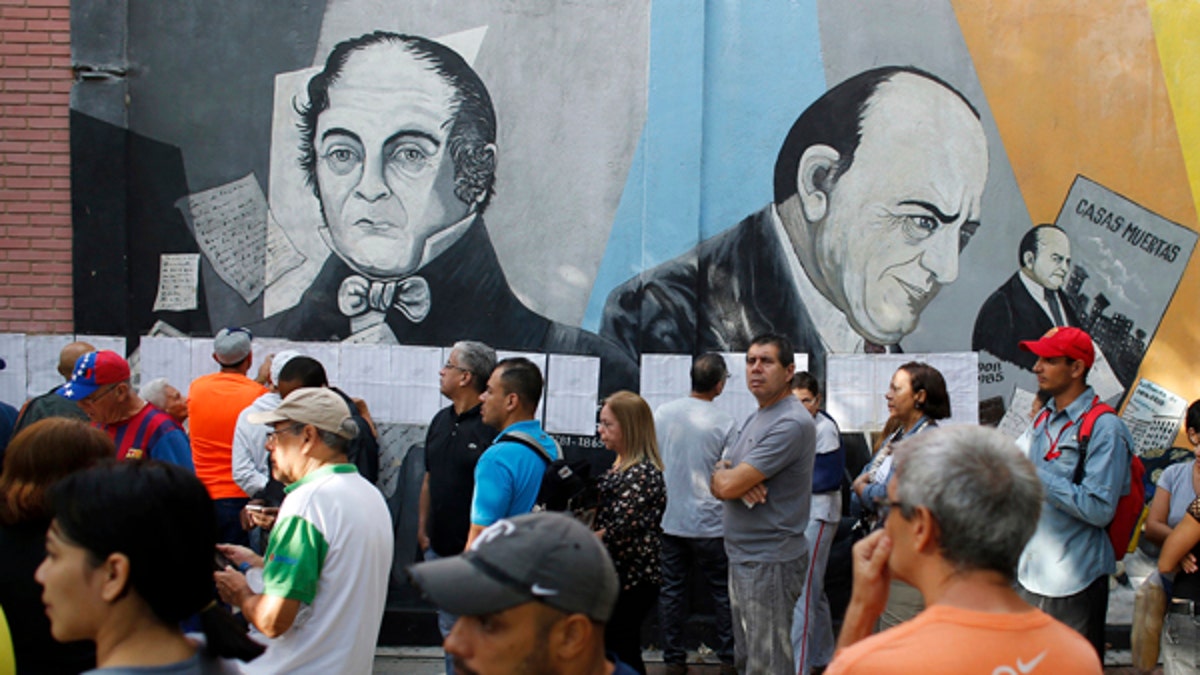
People lineup to enter to a poll station during the election for a constitutional assembly in Caracas, Venezuela, Sunday, July 30, 2017. (AP Photo/Ariana Cubillos)
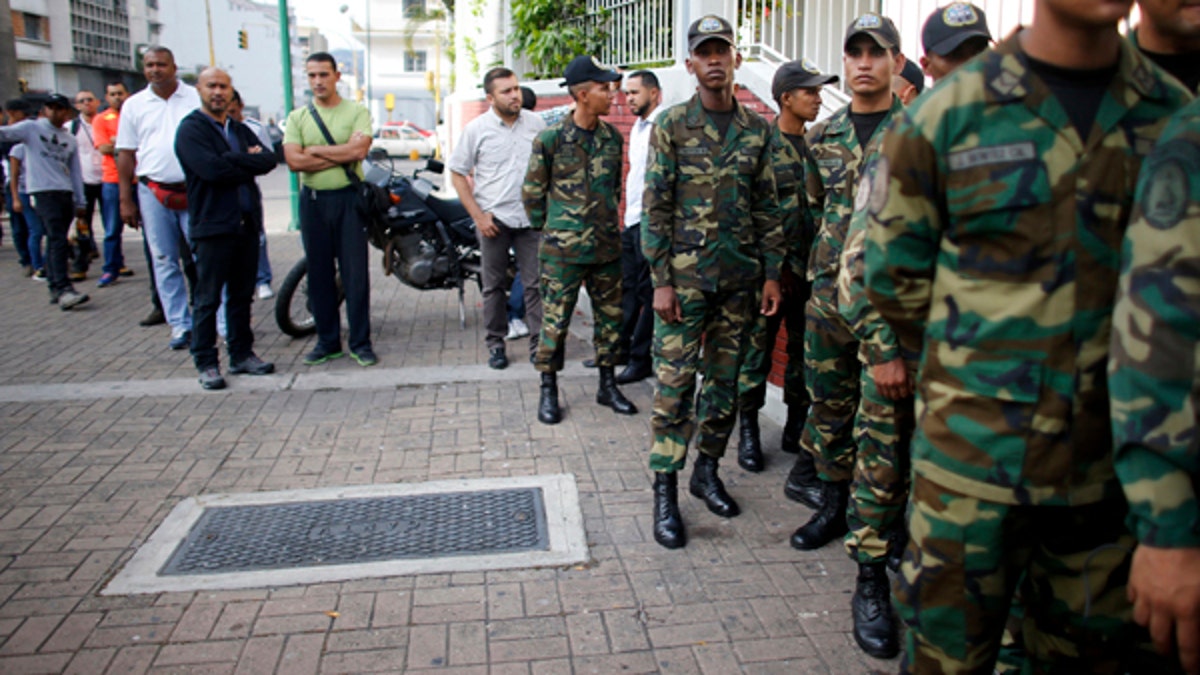
Venezuelan Bolivarian Army soldiers lineup to vote for the constitutional assembly outside of a poll station in Caracas, Venezuela, Sunday, July 30, 2017. (AP Photo/Ariana Cubillos)
An estimated 3.6 million participated in the vote, according to one exit poll based on surveys from 110 voting centers conducted by New York investment bank Torino Capital and a Venezuela public opinion company. That number equates to about 18.5 percent of registered voters.
"The results thus suggest that the government maintains an important loyal core of supporters that it can mobilize in both electoral and non-electoral scenarios," the report concluded.
The same exit poll also noted that Venezuela has an estimated 2.6 million government employees, "suggesting that a large fraction of the votes could have not been voluntary."
A list of nations including Argentina, Canada, Colombia, Mexico, Panama, Paraguay, Spain, Britain and the United States said they would not recognize Sunday's vote.
Maduro said he had received congratulations from the governments of Cuba, Bolivia and Nicaragua, among others.
Opposition leaders had called for a boycott of the vote, declaring it rigged for the ruling party, and by late afternoon they were declaring the apparent low turnout to be a resounding victory. Ahead of the vote, the opposition organized a series of work stoppages as well as a July 16 protest vote that it said drew more than 7.5 million symbolic votes against the constitutional assembly.
"It's very clear to us that the government has suffered a defeat today," said Julio Borges, president of the opposition-controlled but largely powerless National Assembly. "This vote brings us closer to the government leaving power."
Opposition leader Henrique Capriles urged Venezuelans to protest again Monday.
Maduro called the vote for a constitutional assembly in May after a month of protests against his government, which has overseen Venezuela's descent into a devastating crisis during its four years in power. Thanks to plunging oil prices and widespread corruption and mismanagement, Venezuela's inflation and homicide rates are among the world's highest, and widespread shortages of food and medicine have citizens dying of preventable illnesses and rooting through trash to feed themselves.
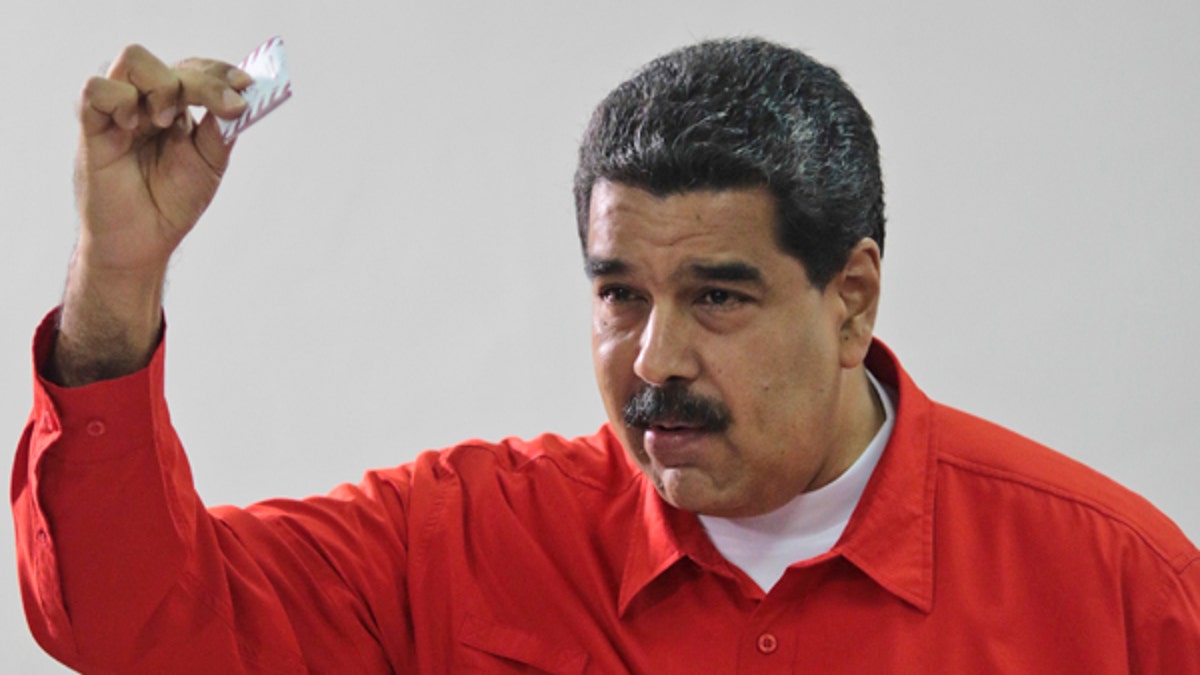
In this photo released by Miraflores Press Office, Venezuela's President Nicolas Maduro shows his ballot after casting a vote for a constitutional assembly in Caracas, Venezuela on Sunday, July 30, 2017. (Miraflores Press Office via AP)
Maduro made clear in a televised address Saturday that he intends to use the assembly not just to rewrite the country's charter but to govern without limitation. Describing the vote as "the election of a power that's above and beyond every other," Maduro said he wants the assembly to strip opposition lawmakers and governors of constitutional immunity from prosecution — one of the few remaining checks on ruling party power.
"People aren't in agreement with this," Daniel Ponza, a drywall contractor, said Sunday as he watched a few dozen people outside a polling place in El Valle, a traditional stronghold of the ruling Chavista movement in western Caracas.
"People are dying of hunger, looking for food in the trash. And I think this is just going to make things worse."
